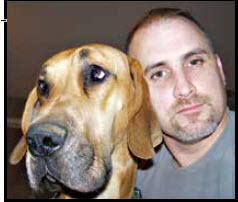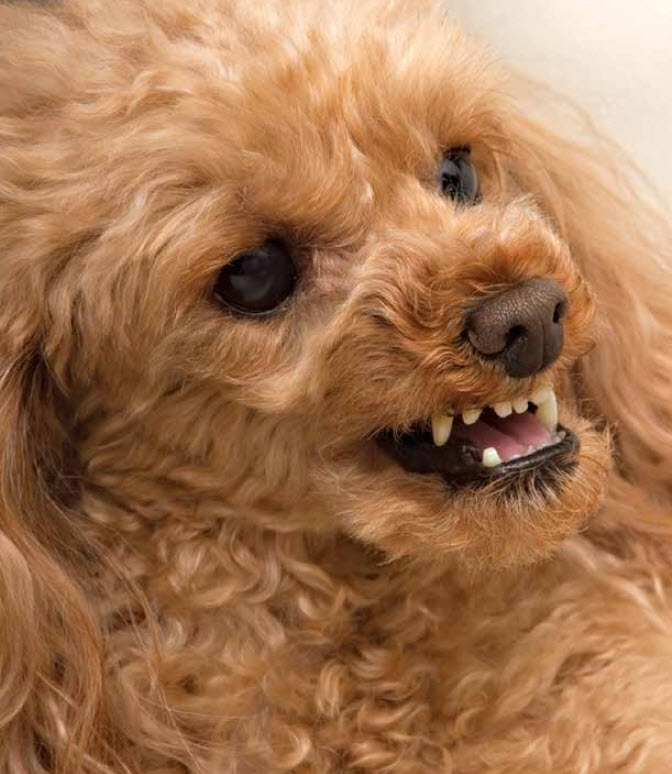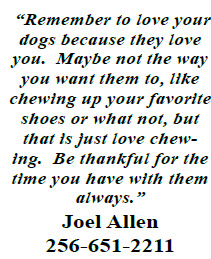 By: Joel Allen
By: Joel Allen
There was a time when I was a boy that our family had a dog named Puddles. She actually was my PeePaw’s (Grandpa’s) dog. She was a poodle mix, if memory serves me correctly. Two things Puddles never liked — a naked boy or anyone sticking out their tongue at her. I will share with everyone why this was with the true story of Puddle’s dislike for the above mentioned.
My Uncle Danny, when he was a boy, peed on Puddles. After that, when Uncle Danny even looked like he might repeat said offense, Puddles would growl; and Danny would have to cover his “wee-wee” area to prevent from getting bit there, all while shuffling past Puddles crying. So, there is the first reason, LOL!

The sticking-out-your-tongue-at-Puddles became a problem when someone in the family teased her, and after sticking out their tongue, they spit on Puddles. After that, if anyone stuck out their tongue at Puddles, she would become this raving, angry dog that would chase and bite if she caught the offender. My Aunt Jean was cornered in the bathroom after PeePaw suggested to her that she should stick out her tongue at Puddles, LOL. Let me tell everyone, the commotion in the house where Puddles had “treed” Aunt Jean in the bathroom and my PeePaw just laughing would have made anyone laugh…especially when everyone could hear Aunt Jean begging PeePaw to call off Puddles. She would crack the door and holler for PeePaw to call off Puddles; and Puddles would charge the door, growling and snarling trying to get Aunt Jean. It’s a good thing Puddles was not a big dog!

So, why did I share this with all my readers? To give everyone a laugh, but also to teach the moral of this story, “Be careful what you teach your dog!” When they are puppies their brain grows and imprints permanent moments in their lives. I always tell people that there are what we call “imprint stages” at 12-weeks and during growing spurts. After they fully grow up, how a dog is treated will greatly encourage how they will behave. In some cases, genetics can also encourage or cause problems; so be careful. Give them love (or in my case, I give mine lubbins — loving and rubbings), and socialize them to different people and environments. If the dog is only allowed to see certain family members and not allowed to meet strangers and other types of people, this can lead to one or two problems — fear biting, where the dog does not trust people and lashes out in defense, or thinking they need to guard the family and all strangers are on the menu (so to speak). A scared dog like a person, can get one hurt.
So, think before teaching your pup anything new. Ask yourself if what is being taught and learned will positively impact the pup. They are a lifetime investment; and remember, they give their love, life, and loyalty. They only ask to be loved in return.
By: Joel Allen


